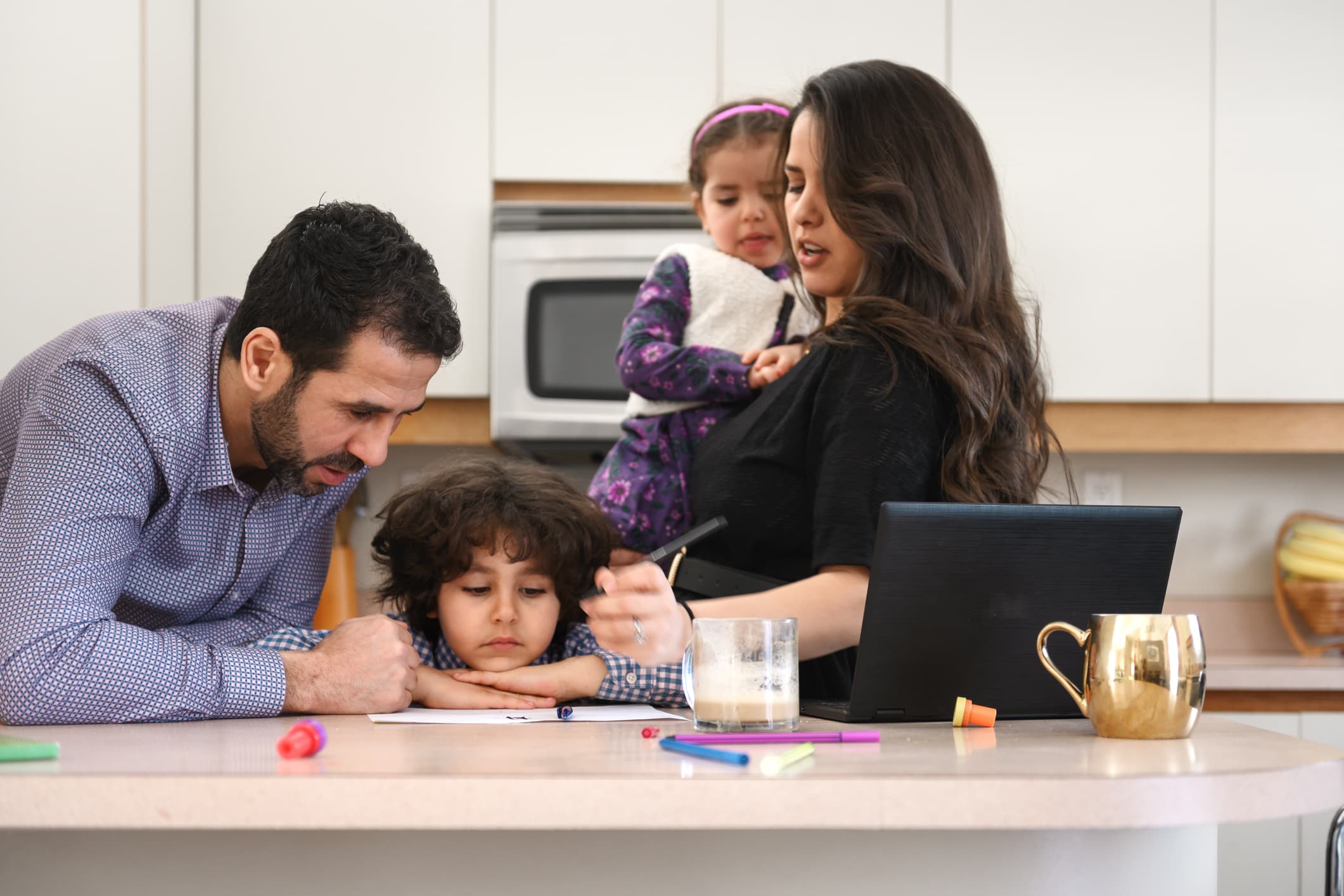
School is going to look very different this year.
And that means working from home is also going to change.
On top of worrying about their kids' health, parents are also apprehensive about the fallout if and when schools shut down again. It's a very real possibility, given that some colleges are shutting down temporarily just a week or so into the fall semester.
Welcome to an era of tough decisions.
More from Invest in You:
How to build an online business doing what you love best
Inadequate emergency funds are even skimpier under the pandemic
How some families managed to avoid pandemic financial fall-out
"The problem is, people design their work lives around knowing their kids are going to be in excellent care from 8 a.m. to 3 p.m. every day," said Thomas Henske, a certified financial planner and partner at Lenox Advisors in New York.
That's no longer a given. Most schools will be going to a hybrid combination of in-person instruction a few hours a week and remote classes the rest of the time.
That leaves parents needing home care. "If so, who and at what cost?" Henske said. "Or do you need to take your eye off the ball?
"For a lot of people, that means lower income."
Most students in elementary school and high school (65%) will have a parent remaining at home with them, according to a survey from Debt.com. The site asked 590 parents in July and August about the emotional and financial impact of their school-age children returning to their classrooms six months after the Covid-19 pandemic shut them down.
About half of parents said they expect to lose some percentage of their household income because of schools closing, the survey found. Few families (less than 4%) said they'd use daycare if the option were available. The rest will require at-home supervision.
Now what?
In ordinary times, Henske says, he discounts predictions that say, "This time is different."
But on several fronts, he admits, the time we are living in has some distinct differences. "You're dealing with a short-term unknown," he said.
Though we usually try to think long-term when it comes to money, Henske says Covid-19 makes it a time to think short-term.
How to allocate
Some of the choices parents may consider to supplement their kids' education — setting up a pod or getting tutoring — are expensive.
If your cash flow tightens and you start worrying about how to stretch your money among several goals, there is really just one choice: the emergency reserve. "You can always repurpose that money in six to 12 months," Henske said.
Even though the CARES Act makes it possible take a withdrawal from a retirement account like a workplace 401(k) plan before age 59½, you'll want to consider how it impacts your eventual nest egg.
Manage emotions
Henske recommends optimism with a dash of pessimism. An optimist himself, he says families must prepare for less-than-wonderful situations.
Keep in mind, Henske says, that the U.S. historically has remained healthy and strong economically over the long run. There's no data to indicate that won't continue, and the country's innovators and talented contributors should bring some comfort, Henske says.
Trying to see into the future is an impossible task, but that's what you must try to do, Henske says.
"The best you can do is try to figure out the logical scenarios and the problems associated with each, and make the best decision you can, based on that," he said.
"Now is not the time to put your head in the sand, but have open and honest discussions with your family and with yourself about how things are."
SIGN UP: Money 101 is an 8-week learning course to financial freedom, delivered weekly to your inbox.
CHECK OUT: How a real estate side hustle helped us add $1 million to our net worth in 5 years via Grow with Acorns+CNBC.
Disclosure: NBCUniversal and Comcast Ventures are investors in Acorns.
"impact" - Google News
August 27, 2020 at 07:00PM
https://ift.tt/3jlb73O
Remote schooling this fall will have a negative financial impact on families - CNBC
"impact" - Google News
https://ift.tt/2RIFll8
Shoes Man Tutorial
Pos News Update
Meme Update
Korean Entertainment News
Japan News Update
Bagikan Berita Ini














0 Response to "Remote schooling this fall will have a negative financial impact on families - CNBC"
Post a Comment